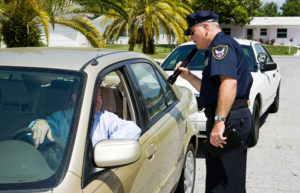Illinois Car Inspection Laws
Car Accident,Personal Injury - June 1, 2024 by Horwitz, Horwitz & Associates
Every state has unique laws pertaining to vehicle maintenance and inspections, and our Chicago car accident lawyers want all Illinois drivers to ensure they follow their counties’ inspection requirements. Failing to conduct vehicle inspections as required by law could lead to traffic tickets, fines, and possibly harsher penalties. Illinois requires emissions inspections for certain vehicles, and drivers of these vehicles should carefully track when their next inspections are due.

Illinois Inspection Requirements
The state of Illinois requires all drivers to register their vehicles, either following purchase or after moving to Illinois from another state. Illinois only requires emissions testing for certain vehicles, and only some counties uphold these emissions testing requirements.
- Cook
- Dupage
- Kane
- Kendall
- Lake
- McHenry
- Monroe
- Madison
- Clair
- Will
While residents of some zip code areas of these counties may not need to have emissions inspections, all drivers in all zip codes within Cook, Dupage, and Lake Counties must arrange appropriate vehicle inspections.
What Does an Illinois Car Inspection Entail?
All gasoline-powered vehicles from model years 1996 or later qualify for testing once they reach four model years old. The same provision applies to large trucks from model years 2007 and newer weighing between 8,501 and 14,000 pounds. Some vehicles such as diesel-powered vehicles and antique vehicles are exempt from these emissions testing requirements.
An emissions test checks to ensure a vehicle is not leaking harmful substances into the environment or endangering the health and safety of the public. The Illinois Environmental Protection Agency handles vehicle emissions testing and testing guidelines for Illinois. Generally, an emissions inspection aims to look for any signs of damaged systems, leaks, fuel consumption, and emissions quality.
During a vehicle inspection, a certified technician or mechanic conducts a thorough examination of a vehicle’s systems, ensures proper function and compliance with federal and state regulations. Test scores are valid for two years, so drivers of qualifying vehicles must arrange for emissions inspections every two years. If a vehicle fails an inspection, the vehicle’s owner must arrange for the necessary repairs to allow the vehicle to meet inspection requirements and then retake the inspection.car
Who Conducts Vehicle Inspections in Illinois?
An Illinois driver cannot simply visit any mechanic or body shop for a vehicle inspection. Only authorized testing locations qualify to conduct official vehicle inspections. These businesses will display officially-issued Illinois Vehicle Services Department placards to notify drivers they are qualified to handle vehicle inspections.
Several locations throughout Chicago are certified for vehicle inspections, such as several Tire Kickers Inspection Stations throughout the city, Air Team Vehicle Emissions Testing, and the City of Chicago Public Vehicle Testing Facility.
Things to Know About Vehicle Inspections
Proper regular maintenance and safe driving can reduce the chances of a driver needing costly repairs and replacement parts to meet inspection requirements. Wear-and-tear will eventually degrade some of a vehicle’s systems, so all drivers should expect to eventually encounter repair costs. While vehicle repairs can be costly, a typical inspection fee is less than $100. However, the driver may need to pay for repairs and replacement parts if his or her vehicle fails inspection. Voluntary smog testing in Illinois incurs a $20 fee.
Illinois drivers must still meet their inspection requirements even if they are outside the state for an extended time. However, it is possible to secure a temporary exemption for one inspection cycle under certain circumstances. If a driver has an out-of-state registration and is only in Illinois temporarily, the driver does not need to worry about emissions inspections.
One final note for Illinois drivers concerning state inspections pertains to notices. The state sends notices to drivers informing them of their next required testing date. If a driver arranges for an emissions inspection outside of the designated timeframe, he or she may not meet the requirements for the next inspection cycle and require a second inspection.


